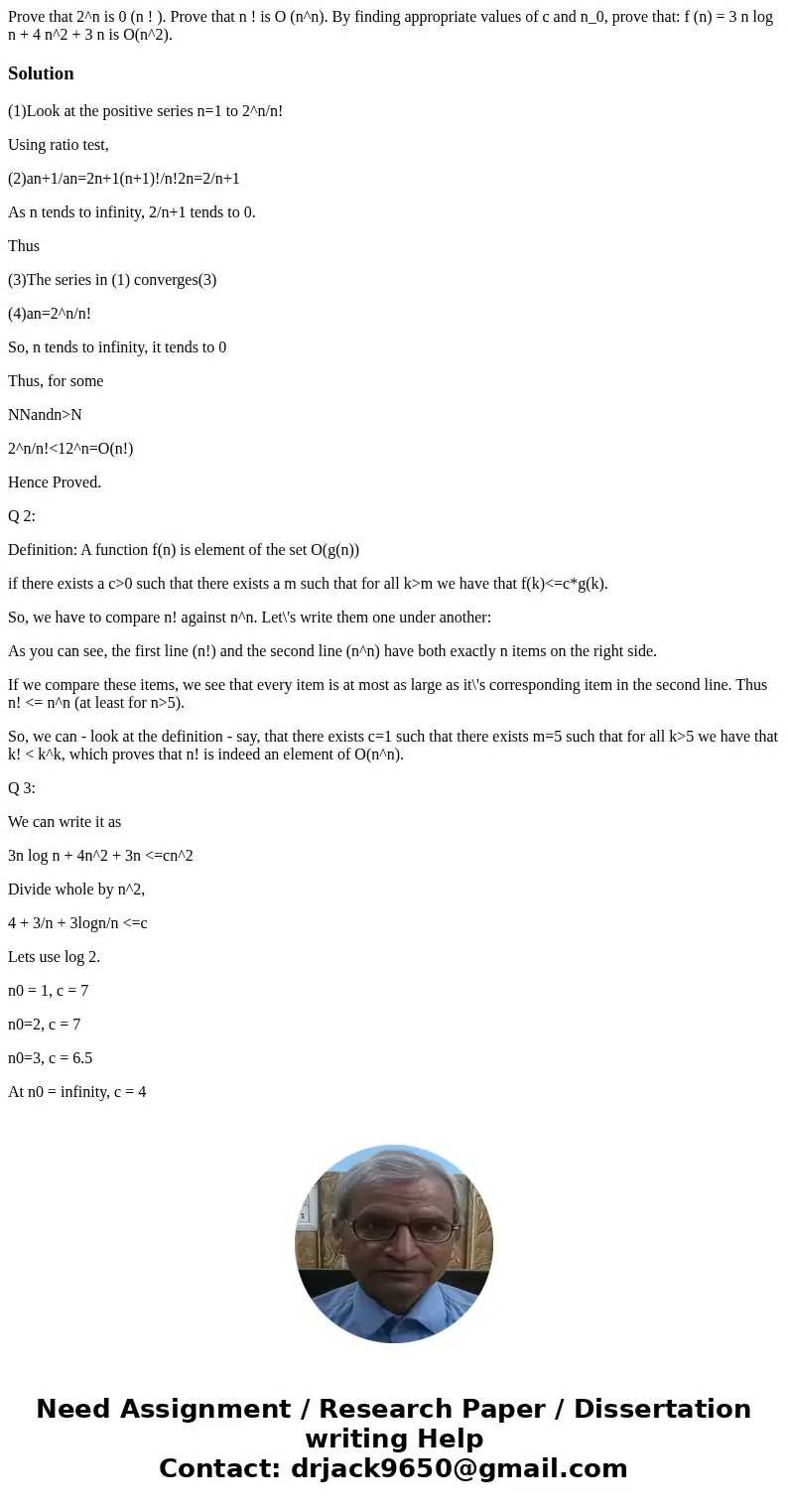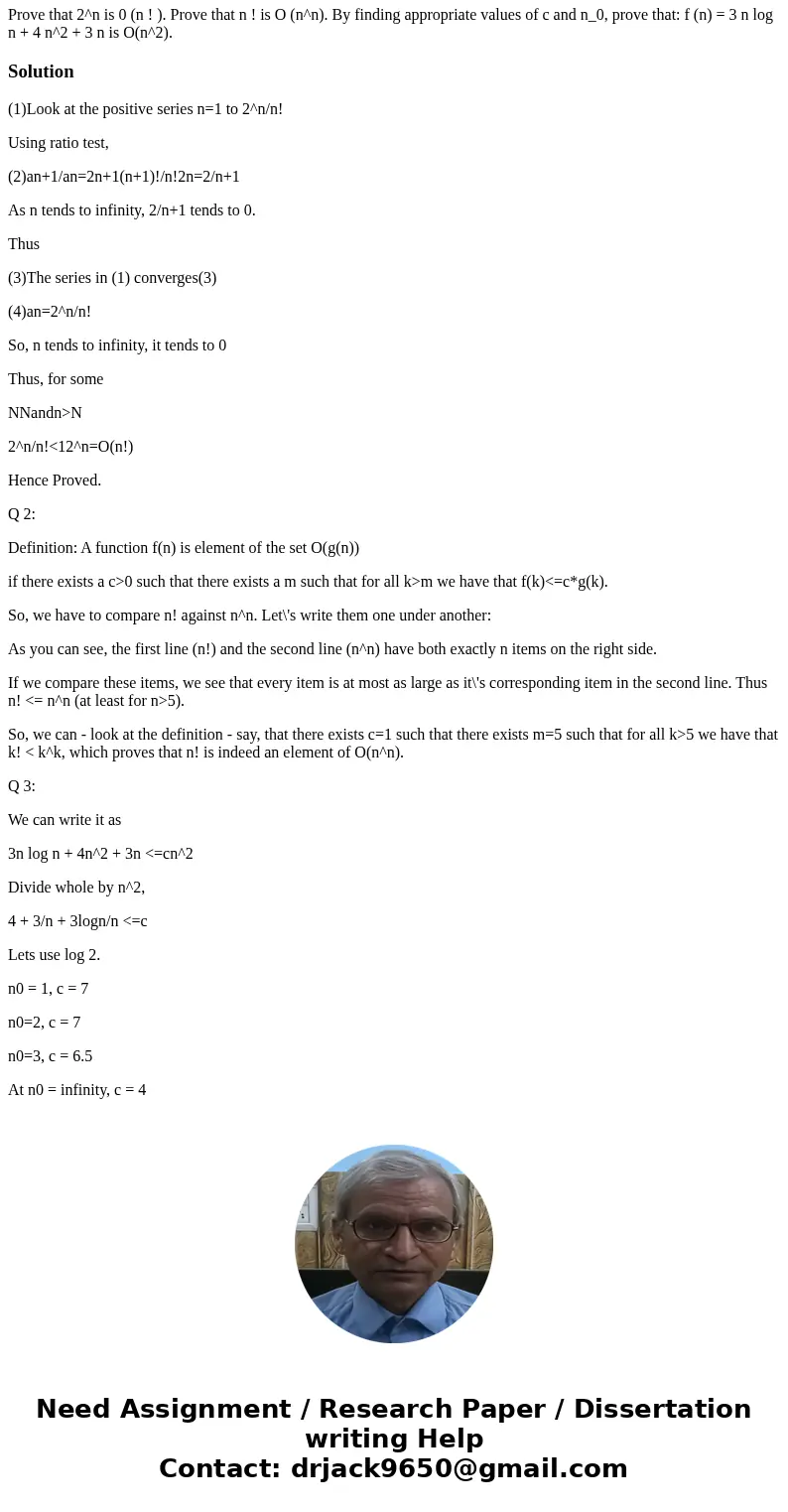Prove that 2n is 0 n Prove that n is O nn By finding appr
Solution
(1)Look at the positive series n=1 to 2^n/n!
Using ratio test,
(2)an+1/an=2n+1(n+1)!/n!2n=2/n+1
As n tends to infinity, 2/n+1 tends to 0.
Thus
(3)The series in (1) converges(3)
(4)an=2^n/n!
So, n tends to infinity, it tends to 0
Thus, for some
NNandn>N
2^n/n!<12^n=O(n!)
Hence Proved.
Q 2:
Definition: A function f(n) is element of the set O(g(n))
if there exists a c>0 such that there exists a m such that for all k>m we have that f(k)<=c*g(k).
So, we have to compare n! against n^n. Let\'s write them one under another:
As you can see, the first line (n!) and the second line (n^n) have both exactly n items on the right side.
If we compare these items, we see that every item is at most as large as it\'s corresponding item in the second line. Thus n! <= n^n (at least for n>5).
So, we can - look at the definition - say, that there exists c=1 such that there exists m=5 such that for all k>5 we have that k! < k^k, which proves that n! is indeed an element of O(n^n).
Q 3:
We can write it as
3n log n + 4n^2 + 3n <=cn^2
Divide whole by n^2,
4 + 3/n + 3logn/n <=c
Lets use log 2.
n0 = 1, c = 7
n0=2, c = 7
n0=3, c = 6.5
At n0 = infinity, c = 4


 Homework Sourse
Homework Sourse